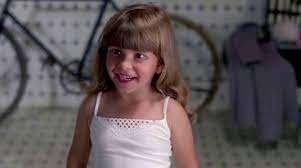Burt Reynolds on Judith Barsi death is a topic that continues to stir emotions decades after the tragic incident occurred. Judith Barsi was a bright child actress whose life was cut short far too soon. While the entertainment world mourned, Burt Reynolds—who worked with her and recognized her talent—was among those deeply affected. His response reflected not only personal sadness but also highlighted the dangers that sometimes lurk behind the curtains of fame. This article explores his reactions, their shared work, and the lasting legacy of Judith Barsi.
Burt Reynolds on Judith Barsi Death: A Connection Born Through Film
Judith Barsi, a rising star in the 1980s, left a lasting mark in Hollywood despite her young age. She voiced characters in major productions like The Land Before Time and All Dogs Go to Heaven, the latter being connected to Burt Reynolds, who voiced the character Charlie. Their work on the animated film helped build a small yet significant bond.
Although they didn’t spend time together on-screen due to voice acting being recorded separately, Burt Reynolds later expressed heartbreak when he heard about Judith’s passing. Even though their relationship wasn’t deeply personal, his reaction revealed a deep empathy and understanding of the tragedy’s weight.
A Tragic Ending That Shook Hollywood
Judith Barsi’s death was one of the most heartbreaking events in child stardom history. She was only 10 years old when her father, József Barsi, murdered her and her mother in a horrifying act of domestic violence before taking his own life. This event shocked the world, especially those within the industry.
Burt Reynolds on Judith Barsi death shared his reaction in interviews and behind-the-scenes commentary. He called the event “unbearable” and said that Judith had a spark that lit up the screen. It was clear her potential was limitless, and Burt, having been in Hollywood long enough to recognize raw talent, understood that her life should have soared.
Burt Reynolds on Judith Barsi Death: Words from the Heart
In later years, when asked about All Dogs Go to Heaven, Burt often paused when Judith’s name was mentioned. While he wasn’t one to easily share his emotions, his tone would shift. He once mentioned, “She brought more emotion to her role than most adult actors ever could.” These words held meaning. They were full of respect, admiration, and sorrow.
Reynolds knew that Judith’s performance added emotional weight to the film, especially because All Dogs Go to Heaven was released after her death. That knowledge gave scenes a haunting echo, particularly because her character Anne-Marie was full of innocence and kindness—qualities that mirrored Judith in real life.
The Emotional Impact on Burt Reynolds
Burt Reynolds was not new to loss or Hollywood’s darker side. However, the loss of a child like Judith hit differently. As someone who had mentored and worked with young talent, Reynolds took the news personally. He expressed concern about how child actors are treated and how the pressures of the industry—and family—can be overwhelming.
Burt Reynolds on Judith Barsi death shared that the industry needed to do better in recognizing warning signs. Judith had shown signs of distress, which were documented by friends and teachers. Unfortunately, those signs were not enough to prevent what happened.
Remembering Judith Barsi: The Legacy Lives On
Even years later, Judith Barsi’s legacy remains strong. Fans still remember her soft voice, bright eyes, and incredible acting ability. Burt Reynolds helped keep that memory alive by continuously praising her work whenever All Dogs Go to Heaven came up in interviews. He didn’t let her be forgotten.
In fact, his emotional reaction became a symbol of how deeply Judith’s death affected those who worked with her, even in brief or indirect ways. His acknowledgment gave fans and the industry a chance to mourn properly and recognize her talent.
Burt Reynolds on Judith Barsi Death and Hollywood’s Responsibility
One of the most critical takeaways from Burt Reynolds on Judith Barsi death was his plea for better protection for child actors. Reynolds believed the industry needed stronger safeguards, better communication, and quicker action when abuse was suspected.
Although he wasn’t close to the Barsi family, he knew enough to say that more could have been done. He openly discussed how the entertainment world has a duty—not just to protect careers—but to protect lives.
Behind the Scenes: The Recording Sessions of All Dogs Go to Heaven
During the production of All Dogs Go to Heaven, both Judith and Burt recorded their parts separately, as is typical with animation. However, Don Bluth, the director, noted that Burt was moved when he finally heard Judith’s recordings. He said, “That little girl is a star.” Her voice made the scenes come alive.
When Burt learned about Judith’s death during post-production, he reportedly sat quietly for a long time, then requested that her memory be honored in any way possible. His idea helped lead to the film’s dedication to Judith Barsi.
How Burt Reynolds Advocated for Change
Although not a vocal activist, Reynolds used his status to push for reforms in the entertainment world. After the tragedy, he participated in discussions about child safety in Hollywood. He believed that the signs of abuse, once noticed, should never be ignored.
Burt Reynolds on Judith Barsi death wasn’t just a reflection—it was a call for awareness. His interviews started new conversations, and his gentle reminders kept the focus on the young lives affected by the industry’s failures.
The Continued Interest in Their Story
Today, fans of both Judith Barsi and Burt Reynolds often revisit All Dogs Go to Heaven with a bittersweet feeling. Knowing the behind-the-scenes tragedies makes the movie feel different. But the performances, especially those by Judith and Burt, still shine brightly.
Their voices helped create something magical. And while one was lost far too soon, the other never let her memory fade. Burt Reynolds on Judith Barsi death remained respectful, heartfelt, and honest—even years later.
Why This Story Still Matters
It’s important to talk about Judith Barsi’s life and death, not only to honor her memory but also to prevent future tragedies. Burt Reynolds knew this. His voice was one of the few that consistently reminded fans and professionals alike about the real dangers that children may face behind the spotlight.
His reactions weren’t exaggerated or performative. They were authentic. And that’s why they still resonate today.
Burt Reynolds on Judith Barsi Death: A Legacy of Emotion and Action
By acknowledging the pain of Judith’s death and using his platform to speak up, Burt Reynolds left a legacy of not just talent—but compassion. His empathy gave weight to an issue that had too often been ignored.
In the end, Burt Reynolds on Judith Barsi death wasn’t about fame. It was about humanity. It was about a grown man recognizing the loss of a child and ensuring the world didn’t forget her brilliance.
Read More: Stunning Ideas for Money Piece Hair Dark Hair
FAQ
Burt Reynolds on Judith Barsi death expressed deep sadness and respect for her talent. He mentioned that she brought more emotion to her role than many adult actors.
Although they worked on the same film (All Dogs Go to Heaven), their recordings were done separately. However, Reynolds still admired her talent and later spoke fondly of her.
He was visibly shaken and saddened by the news. He pushed for more awareness around child safety in Hollywood following her tragic death.
The film featured both Burt Reynolds and Judith Barsi. It was released after her death, and her performance in it became a tribute to her life and talent.
He consistently praised her performance in interviews and supported the idea of dedicating the film to her. His kind words helped fans remember her beyond the tragedy.











